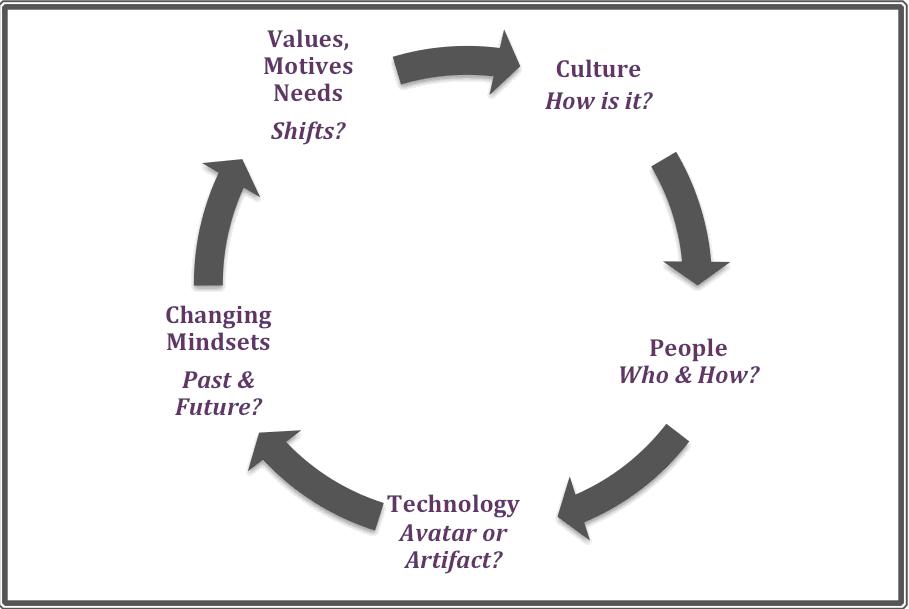Psycognitive Socio-Cultural Research and Analysis: An Overview
The focus of Psycognitive sociocultural analysis is on understanding people and cultures in order to design and shape future technologies across cultures.
Culture is a key parameter in the adoption and use of technology. It is essential therefore to understand the cultural context in which technology is used. In culture lie the seeds of innovation and pointers to future needs, usage and adoption criteria.
UNDERSTANDING CULTURE

Application
The application areas for Psycognitive socio-cultural analysis include:
- Human centered design;
- Cross-cultural design;
- Technology cultural customisation;
- The sociocultural psychological dimensions impacting future technologies.
A recent application of the Psycognitive sociocultural analysis was in the study 'Towards A Future Internet: Interrelation between Technological, Social and Economic Trends' which was carried out for the European Commission's DG Information, Society and Media.
Framework
Psycognitive sociocultural analysis draws from Psycognition, a methodological approach for studying and understanding subconscious human behaviours. Therefore the focus of research and analysis is on understanding the factors which drive and shape these behaviours individually and collectively. This approach delves beneath the visible cultural attributes to examine the invisible ones such as the core belief systems which underlie behavioural strategies.
The analytical Psycognitive sociocultural framework combines two forms of analyses: cultural and human behavioural. The cultural analysis draws upon a range of dimensions and characteristics depending upon the focus and scope of the study. For example, a number of combinations could be formed such as Hall's dimension of high-low context, and Hofsted's dimension of collectivism and individualism with dimensions including ethos and identity. Typically between twenty and thirty dimensions are applied in an analysis.
The human behavioural analysis delves into the socio-behavioural fundamentals which shape a culture, for example dissonance, internal conflicts, and contradictions. It is at this level of analysis that cultural 'invisibles' such as ingrained moralities, latent mores, unwritten rules, undeclared values, and 'hidden' drivers begin to emerge. Socio-behavioural factors are grouped around dimensions such as power, equality, uncertainty, resilience, disparities and functional consistency.
A Psycognitive sociocultural examination of culture also focuses on indicators that point to the particular 'character' of a culture or society. A characterological analysis identifies and defines the 'Cultural Characterology' of a country. This analysis is based on dimensions such as cultural operatives, the organisation of experience, capacity for change, cultural mapping, identity, and coherence.
© Dr. Karmen Guevara 2011. All Rights Reserved.
